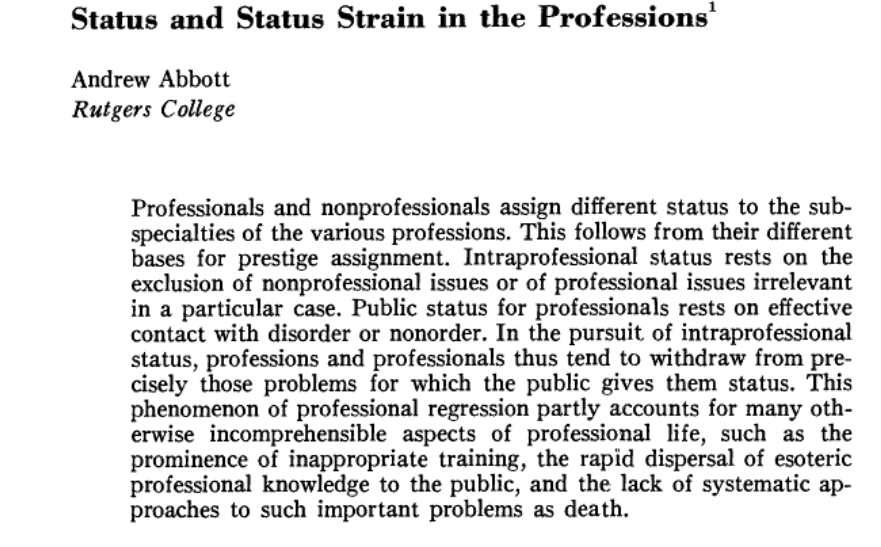<THREAD>
Well, it's useful to start with Abbott's (1981) discussion of the status-purity paradox in the professions: jstor.org/stable/2778344….
Abbott's observation: On the one hand, the professionals & professional subfields that are most respected by the lay public...

Abbott's treatment is very useful & very general, but it has three limitations that I address in a recent essay (emerald.com/insight/conten…)
3) He never explains *why* insiders care about purity so much. Indeed, why is this? And why doesn't the lay public care?
But shouldn't professionals...
Yes, but two buts. First and foremost, professions have a very important objective...
For example, since the lay public doesn't care to understand the diff btwn
This takes us back to how I began this thread. Not only can we expect the public to be ignorant of...









